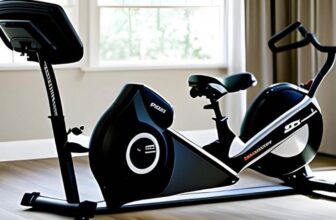
While pre-workout supplements contain ingredients that can increase energy levels, they are not intended for use as an energy drink. The primary purpose of pre-workout supplements is to provide a temporary boost of energy and focus during exercise, which can help individuals go through hard and challenging workouts and obtain their desired fitness goals.
What Does Pre-Workout Taste Like?
Pre-workout supplements come in a variety of flavors to cater to different preferences. Common flavors include fruit punch, watermelon, blue raspberry, and tropical blends. These supplements often have a tangy and slightly sweet taste due to the presence of ingredients like caffeine, amino acids, vitamins, and natural extracts. The taste can vary between brands, but most pre-workouts are formulated to be palatable and enjoyable to consume.
What are the dissimilarities Between Pre-Workout drinks and Energy Drinks?
While pre-workout supplements and energy drinks both aim to provide an energy boost, they differ in composition and intended use. Pre-workout drink supplements are especially formulated to improve physical performance at gyms during workouts. The Pre-workouts are quite budget friendly when compared to the regular energy drink available out there. They generally constitute ingredients like caffeine, beta-alanine, creatine, and branched-chain amino acids (BCAAs). On the other hand, energy drinks are formulated to provide a quick energy boost for general purposes and often contain high levels of caffeine, sugar, and other stimulants. Energy drinks are not tailored to maximize workout performance like pre-workout supplements.
Is Pre Workout Better Than Coffee?
The choice between pre-workout supplements and coffee relies on personal fondness and goals. Pre-workout supplements offer a precise blend of ingredients and constituents developed to improve exercise and biological performance. Some pre-workouts contain healthy ingredients besides caffeine, which can keep you energized and keep you healthy at the same time. Pre-workout drinks might cost only about $1, whereas coffee might cost about $2 to $3. One dose of pre-workout can be equivalent to a two-shot coffee. They can provide a more targeted and intense energy boost compared to coffee, thanks to ingredients like caffeine and BCAAs. However, if you are not engaging in physical activity, coffee may be a more suitable choice as it offers a milder and sustained energy boost. It’s important to note that excessive consumption of either pre-workout or coffee can have adverse effects, such as jitters, increased heart rate, and disrupted sleep patterns.
Why Does Pre-Workout Not Work For Me?
Individual responses to pre-workout supplements can vary due to several factors. Some possible reasons why pre-workout may not work effectively for certain individuals include:
- Tolerance: Regular consumption of pre-workout or other caffeinated products can lead to high tolerance, diminishing the effects over time. Taking breaks from pre-workout or adjusting the dosage may help restore its effectiveness.
- Sensitivity: People may have different sensitivities to the components existing in the pre-workout drink supplements. Factors such as body weight, metabolism, and personal tolerance levels can influence how an individual responds to pre-workout.
- Expectations: Pre-workout is not a magic solution that guarantees instant results. It might require some period to get activated and start being effective. Its significance may be impacted by diverse aspects such as individual fitness levels, diet, and overall lifestyle. Managing expectations and combining pre-workout with a well-rounded fitness routine is crucial.
Can Pre Workout drinks be used As Energy Drinks?
Though pre-workout drink supplements can deliver an ultimate energy boost up, they are significantly formulated to improve biological, physical, and athletic performance at gyms during workouts or at gyms. Using pre-workout as an energy drink for general purposes may not be ideal due to its targeted composition. Energy drinks which are designed for quick energy replenishment, maybe a more suitable choice outside of exercise routines. A typical pre-workout drink contains about 150 to 300 mg of caffeine, whereas an energy drink contains 74 mg of it. So pre-workouts can be termed as a stronger proxy of energy drinks. Hence, they should be drunk with utmost caution keeping the dosage under consideration. It’s important to consider the specific goals and requirements when deciding between pre-workout and energy drinks.
What Ingredients to Avoid In Pre Workout?
When selecting a pre-workout supplement, it’s important to be aware of certain ingredients that may have adverse effects or be potentially harmful to your health. Here are a few constituent ingredients to be avoided in pre-workout supplements:
- Artificial Sweeteners: Some pre-workout supplements contain artificial sweetening agents, like aspartame or sucralose. These artificial ingredients might not be good for health. Oftentimes, they become the reason for an unhealthy and upset stomach. These sweeteners can cause digestive issues and headaches and might have long-term dominating health implications. Opt for supplements sweetened with natural alternatives like a monk or stevia fruit extracts.
- High Amounts of Caffeine: While caffeine is a common ingredient in pre-workout supplements, excessive amounts can lead to jitters, increased heart rate, and sleep disturbances. Some people might have less biological tolerance towards caffeine. Look for supplements with moderate caffeine content, and be reasonable about your prevalent caffeine intake from various other sources.
- Proprietary Blends: Some pre-workout products use proprietary blends, where specific ingredient quantities are not disclosed. This scarcity of translucency makes it problematic to specify the effectiveness and safety of the supplement. Choose products that provide detailed ingredient information, including their merits and demerits.
- Artificial Colors and Flavors: Artificial colors and flavors can add unnecessary chemicals to your pre-workout supplement. Opt for supplements that utilize natural colors and flavors derived from fruits, vegetables, or herbs.
- Fillers and Additives: Check the ingredient list for unnecessary fillers, additives, or preservatives. These additives offer no nutritional value and may increase the risk of adverse reactions or allergies. Always read the ingredient labels carefully and consider consulting with a registered dietitian or a healthcare and nutritional professional before starting any new supplement regimen.
In conclusion, though pre-workout drinks can deliver an utmost energy boost up, they are specifically formulated to enhance performance during workouts. Their composition and targeted benefits distinguish them from energy drinks, which are designed for general-purpose energy replenishment. Pre-workout supplements may offer a more intense energy boost compared to coffee, but it’s important to consider individual preferences, goals, and potential side effects. Remember to choose pre-workout supplements wisely, avoiding ingredients that may be harmful or have adverse effects. Consulting with a nutrition and healthcare professional is the best idea if you have any concerns or questions about pre-workout usage.
While it is generally safe to take pre-workout supplements, it is not recommended to use them every day for an extended period. Regular and prolonged use may lead to tolerance, reducing the efficacy of the energy supplement. Regular intake of them might cause severe side effects, like jitters, upset stomach, anxiety and more. Taking breaks from pre-workout usage can help maintain its efficacy. Additionally, it is essential to observe the suggested dosage and not overextend the recommended day-to-day intake.
The frequency of pre-workout consumption depends on the separate and the exact product being utilized. Professionals and health experts advise following the manufacturer’s suggestions regarding timing, frequency and dosage. Taking a pre-workout once a day before your workout is typically sufficient for most individuals going to gyms for workouts. However, it is indeed mandatory to pay heed to your body’s demands and proportionally adjust accordingly. Avoid taking multiple doses in a short period or combining pre-workout with other stimulants to prevent potential side effects.






